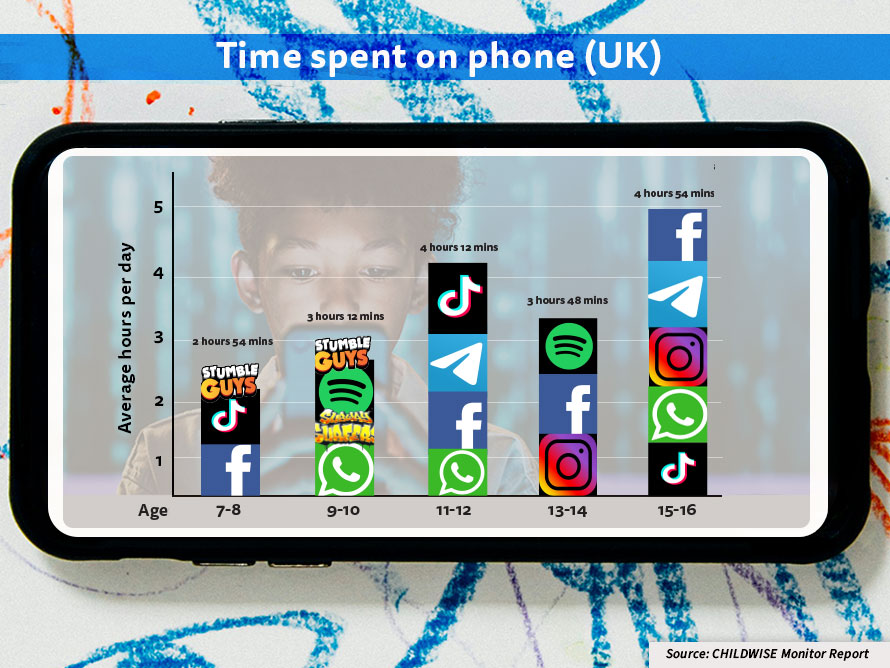Can we turn back time? Mental health problems are shooting up even while literacy rates plummet. Some pin the blame on the little box in your hand. But can we do without them?
End ‘phone-based childhood’ now say experts
 Epidemic: Nearly half of all children aged five to 10 in the UK have their own mobile phone.
Epidemic: Nearly half of all children aged five to 10 in the UK have their own mobile phone. Glossary
Literate - Able to read and write.
Anxiety - A feeling of unease or worry. It can be mild or very severe.
Depression - Low mood that affects someone's daily life, and can last for weeks or months.
